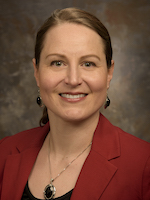Anomalies in the education-health gradient: how can they inform our understanding of population health inequalities?
Anna Zajacova, University of Western Ontario
Date: Friday, April 13th
Time: 11 AM – 1:00 PM
Location: HSB 100 (155 College Street)
Anna Zajacova is a demographer, sociologist, and social epidemiologist who studies social determinants of population health across the life course. Her main line of inquiry aims to understand how and why educational experiences and educational attainment are related to adult health. She has also contributed to literatures on disability and pain trends in US and Canada, obesity among adults and elderly, and health evaluation processes. Trained at Princeton, Texas, and Michigan, Zajacova joined the Sociology Department at University of Western Ontario in 2017.
Abstract
The largest educational-attainment group in the US –nearly 30% of the population or 54 million people– comprises adults who attended a college or university but never earned a bachelor’s degree. Surprisingly little is known about the health of adults in this heterogeneous group. In general, the education-health association occurs on a gradient, where more schooling equates to better health, a pattern considered universal. Several years ago, Zajacova and co-authors discovered a startling anomaly in the gradient: adults at the sub-baccalaureate level reported more health problems than high school graduates who never attended college. Could the anomaly simply be due to differential knowledge and reporting of health problems? Has the anomaly always been there? Which population groups does it affect? And most importantly, why does the anomaly exist? Using different data sources and approaches, I explore these key questions and discuss the implications for our understanding of health inequalities.

